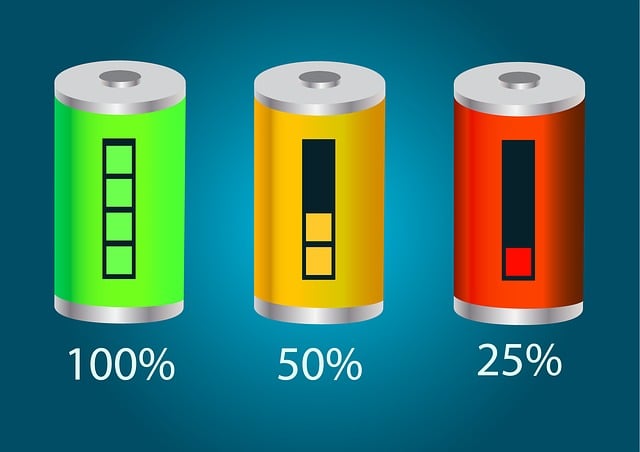Oregon's strict drug laws carry severe penalties, making an effective Oregon drug defense crucial. Building a strong defense team with specialized lawyers and experts is key. The "strict liability" principle complicates defenses, leading to harsh consequences for unintentional infractions. Attorneys use strategies like challenging evidence admissibility, questioning chain of custody, and negotiating plea bargains. Customized tactics based on case specifics, such as arguing for personal use or mitigating factors, can lead to favorable outcomes.
In Oregon, drug cases carry significant penalties, making an effective Oregon drug defense crucial. This article guides you through navigating these complexities. We explore Oregon’s drug laws and penalties, emphasizing the importance of a robust defense team comprising skilled lawyers and experts. While challenges persist, we delve into common legal strategies employed in Oregon drug cases. Through real-world case studies, we illustrate successful drug defenses, offering insights for those facing similar charges. Discover how proactive legal tactics can mitigate outcomes in Oregon’s drug cases.
- Understanding Oregon's Drug Laws and Penalties
- Building a Strong Defense Team: Lawyers and Experts
- Challenges in Drug Case Defenses in Oregon
- Common Legal Strategies for Oregon Drug Cases
- Case Studies: Successful Drug Defense in Oregon
Understanding Oregon's Drug Laws and Penalties

Oregon has strict drug laws, with penalties varying depending on the type and quantity of substance involved. Understanding these laws is crucial for anyone facing drug charges in the state. Possession and use of controlled substances are illegal and can lead to severe consequences, including fines and imprisonment. Oregon drug defense strategies often involve challenging the evidence and understanding the specific circumstances of the case.
For instance, a strong defense could argue that the amount seized was small, indicating personal use rather than intent to sell or distribute. Additionally, Oregon’s legal system may consider any mitigating factors, such as the individual’s history or mental health conditions, which can influence sentencing. Knowing these nuances and building a robust defense is essential for those fighting drug charges, aiming to navigate Oregon’s legal framework successfully.
Building a Strong Defense Team: Lawyers and Experts

Building a robust defense team is an integral step in any Oregon drug defense case. The right lawyers and experts can significantly influence the outcome of your trial. Seek out attorneys specializing in Oregon drug defense, who have experience navigating local laws and courts. Their expertise ensures they stay updated on legal precedents, understand the nuances of drug-related cases, and employ strategic arguments tailored to Oregon’s unique regulations.
A comprehensive defense team may also include forensic scientists, toxicologists, and addiction specialists. These experts can provide valuable insights into the evidence, challenge the prosecution’s case, and offer alternative explanations or interpretations. Their combined knowledge and skills strengthen your defense, aiming to achieve the best possible outcome in your Oregon drug defense case.
Challenges in Drug Case Defenses in Oregon

In Oregon, drug case defenses face unique challenges due to the state’s strict laws and stringent penalties for drug offenses. One significant hurdle is the “strict liability” aspect of many drug possession and distribution charges, which means intent to deliver or possess with knowledge may not always be a defense. This legal concept can make it difficult for individuals to avoid harsh consequences, even if they were unaware of the illegal nature of their actions.
Additionally, Oregon’s drug laws have led to a significant increase in arrests and prosecutions, creating a complex and often opaque legal landscape. Navigating this terrain requires extensive knowledge of local statutes and case law. The state’s focus on stringent penalties also means that plea bargains are prevalent, leaving little room for successful Oregon drug defense strategies outside of showing a lack of intent or mitigating circumstances. This makes it crucial for defendants to seek experienced legal counsel who can navigate these challenges effectively.
Common Legal Strategies for Oregon Drug Cases

In Oregon drug cases, several common legal strategies are employed by defense attorneys to safeguard their clients’ rights and achieve favorable outcomes. One key approach is challenging the admissibility of evidence, including any illegal search and seizure of drugs or related items. Defense lawyers may argue that law enforcement violated a defendant’s Fourth Amendment rights during the investigation stage, which can lead to the exclusion of evidence in court.
Another strategy involves questioning the chain of custody of the seized drugs. This ensures that the substance tested is indeed the same as that recovered by police and preserves any potential argument about contamination or tampering. Additionally, Oregon defense attorneys often explore options like negotiating plea bargains, where a defendant may plead guilty to reduced charges in exchange for a more lenient sentence, offering a possible path to avoid a trial and its potential consequences.
Case Studies: Successful Drug Defense in Oregon

In Oregon, successful drug defense strategies often rely on a deep understanding of local laws and unique case nuances. One notable example involves a client accused of possession with intent to distribute. The defense team, leveraging extensive knowledge of Oregon drug defense laws, successfully argued that the small amount of substance found on the individual was for personal use rather than resale. They presented evidence from expert witnesses and past behavior records that supported this claim, ultimately leading to a reduced charge and lighter sentence.
Another compelling case involves a youth facing serious drug trafficking charges. The defense attorney, focusing on the client’s lack of criminal history and age, negotiated a plea bargain that resulted in probation rather than incarceration. This strategy not only mitigated the legal consequences but also allowed for the young person to avoid a lasting record, emphasizing the importance of Oregon drug defense tactics tailored to individual circumstances.






